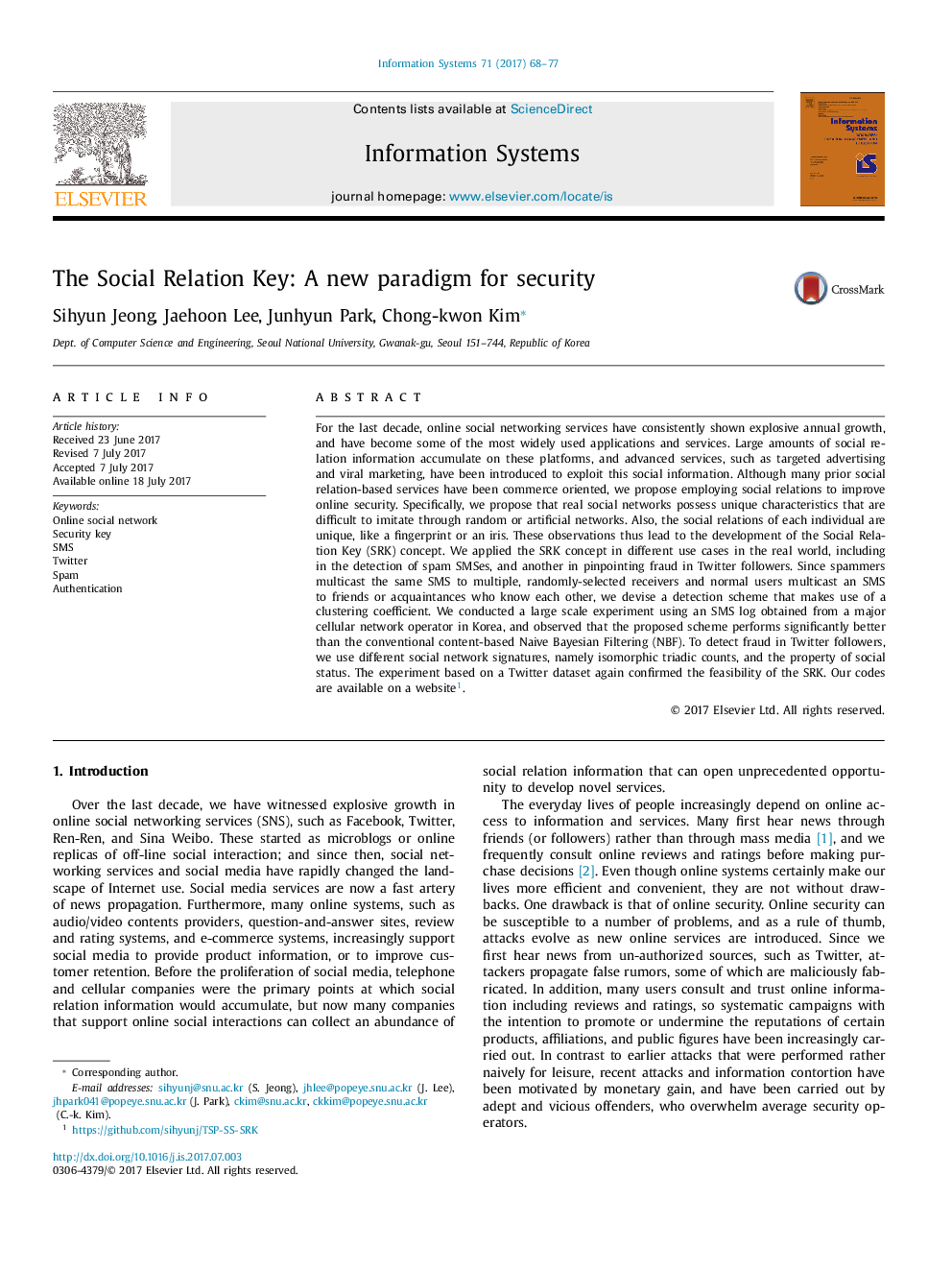ترجمه فارسی عنوان مقاله
کلید ارتباط اجتماعی: یک پارادایم جدید برای امنیت
عنوان انگلیسی
The Social Relation Key: A new paradigm for security
| کد مقاله | سال انتشار | تعداد صفحات مقاله انگلیسی |
|---|---|---|
| 85238 | 2017 | 10 صفحه PDF |
منبع

Publisher : Elsevier - Science Direct (الزویر - ساینس دایرکت)
Journal : Information Systems, Volume 71, November 2017, Pages 68-77
ترجمه کلمات کلیدی
شبکه اجتماعی آنلاین، کلید امنیتی، پیامک، توییتر، هرزنامه ها، احراز هویت،
کلمات کلیدی انگلیسی
Online social network; Security key; SMS; Twitter; Spam; Authentication;

